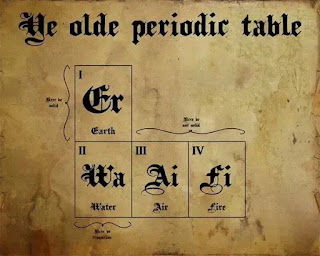In their article "Becoming Relevant Again: Applying Connectivism Learning Theory to Today’s Classrooms," Jeff Utecht and Doreen Keller quote George Siemens in saying that one's "capacity to know more is more critical than what is currently known." We are getting new information every day, and the half life of knowledge is shrinking rapidly. Some information that a college freshmen learns on their first day of class is already outdated by the time they graduate four years later! So how do we as educators keep up with this? The answer is, well, we don't. We cannot possibly teach all of the knowledge that a student will need for their future careers, because a large portion of that knowledge hasn't even been conceived yet. Rather, we should teach our students how to learn, unlearn, make connections, and apply those connections to different scenarios.
I've talked with my friends who have entered the workforce, and many of them agree that their university classes had little practical application to their current jobs. What they say has been the most helpful thing that they got out of their college education was training on how to learn new things and wrestle with hard concepts, which are skills that they do on a daily basis at their jobs. So, as an example, we no longer do we need to memorize the periodic table of elements (although props to you if you do), but rather we need to practice how to apply the information found in the periodic table to problems in real life. We should ask our students questions like: Why is an atomic number important? When do you take it into consideration?
The world is evolving, and formal education should evolve with it. If you click on the image below, it will take you to a six-minute YouTube video that touches on this idea. I saw this video a year ago and think about it often, so I would recommend watching it! If clicking on the goldfish doesn't work, here is the link.


I really relate to this. I like how you suggested "we should teach our students how to learn, unlearn, make connections, and apply those connections to different scenarios". I also really liked the video and how he asked if we are preparing students for the future or the past and showed how the classroom hasn't changed with the changing world. Definitely some good points to consider!
ReplyDelete"Why is an atomic number important? When do you take it into consideration?" and 45 minutes later I learned why and when and never before even knew before this moment WHY. Thank you for teaching me something new by simply asking the question. :)
ReplyDelete